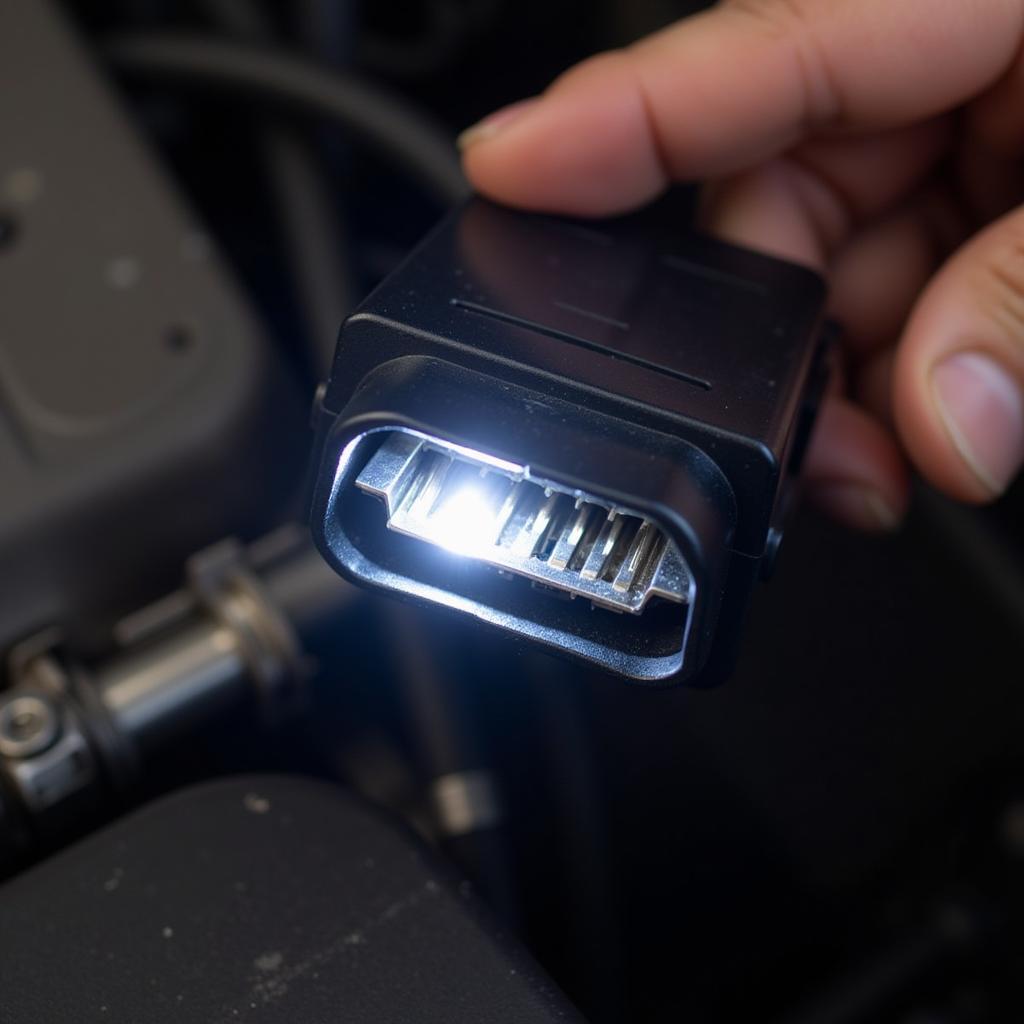Your car’s refusing to talk – and we’re not talking about the radio silence after a heated argument. If your car won’t pick up diagnostics, it can feel like you’re facing a frustrating and expensive mystery. Don’t worry, DiagFixPro is here to help you crack the code.
There are several reasons why your car might be experiencing a communication breakdown with diagnostic tools. This article will guide you through common causes, troubleshooting tips, and potential solutions to get your car talking again.
Why Won’t My Car Connect to Diagnostics?
Before we dive into solutions, it’s crucial to understand what could be causing the problem in the first place. Here are some of the most frequent culprits:
1. Faulty OBD-II Port or Connector
The OBD-II port is your car’s communication hub for diagnostics. A damaged, loose, or dirty port can easily disrupt the connection.
Troubleshooting Tips:
- Visual Inspection: Check for bent pins, debris, or corrosion inside the port.
- Connection Check: Ensure the connector is firmly plugged in. A loose connection can cause intermittent communication problems.
 Inspecting OBD-II Port
Inspecting OBD-II Port
2. Blown Fuses
Fuses protect your car’s electrical circuits from overloads. A blown fuse linked to the OBD-II port or related systems can interrupt the diagnostic connection.
Troubleshooting Tips:
- Consult Your Owner’s Manual: Locate the fuse box and identify the fuse associated with the OBD-II port or the suspected problematic system.
- Fuse Inspection: Look for a broken fuse wire. Replace it with a new fuse of the same amperage if blown.
3. Dead Car Battery or Electrical Issues
The OBD-II port needs power to communicate. A dead battery or electrical issues like a faulty alternator can prevent the diagnostic tool from establishing a connection.
Troubleshooting Tips:
- Battery Check: Test your battery’s voltage. If it’s significantly low, jump-start your car or charge the battery.
- Alternator Check: A professional mechanic can diagnose if your alternator is failing to charge the battery properly.
4. Damaged Wiring or Faulty ECU
Wiring issues or a malfunctioning Engine Control Unit (ECU) can severely disrupt communication between the vehicle’s systems and the diagnostic tool.
Troubleshooting Tips:
- Visual Wiring Inspection: Check for any visible damage to wires connected to the OBD-II port or related components.
- Professional Diagnostics: ECU problems and complex wiring issues typically require specialized equipment and expertise for accurate diagnosis and repair.
5. Incompatible Diagnostic Tool or Software
Using an outdated or incompatible diagnostic tool or software can lead to connection problems.
Troubleshooting Tips:
- Compatibility Check: Verify your diagnostic tool and software are compatible with your car’s make, model, and year.
- Software Updates: Ensure you are using the latest version of the diagnostic software.
When to Seek Professional Help
While some diagnostic issues can be resolved with basic troubleshooting, it’s essential to recognize when professional assistance is necessary:
- Persistent Communication Problems: If the problem persists after attempting basic troubleshooting steps, it’s best to consult a qualified mechanic.
- Complex Electrical Issues: Issues related to wiring, ECU malfunction, or other complex electrical components require specialized knowledge and tools.
Conclusion
A car that won’t pick up diagnostics can be a frustrating experience, but understanding the potential causes and following the appropriate troubleshooting steps can help you identify and resolve the issue. Remember, DiagFixPro is your trusted resource for all things car diagnostics. If you’re facing persistent problems, don’t hesitate to seek professional help to get your car communicating again.

Leave a Reply